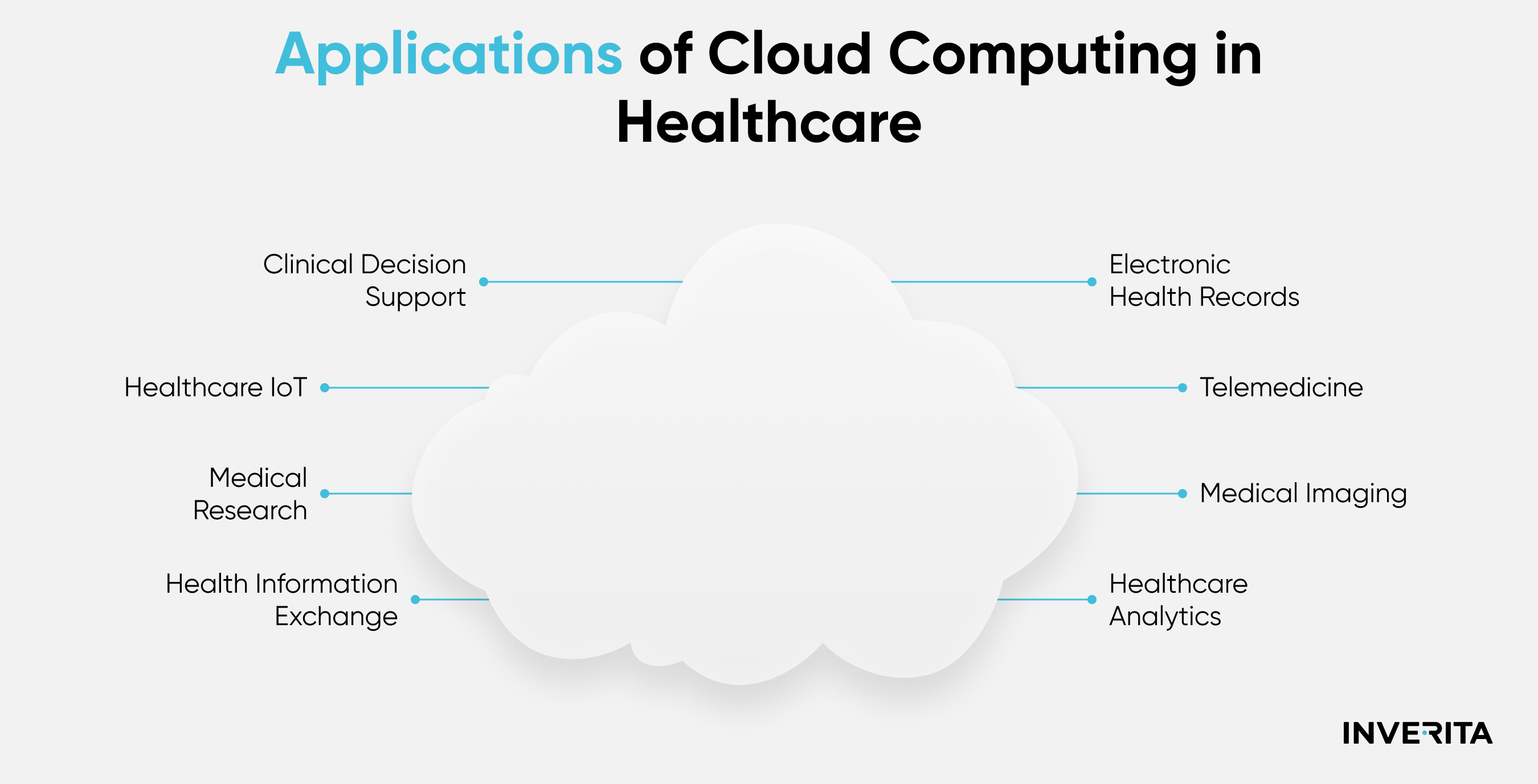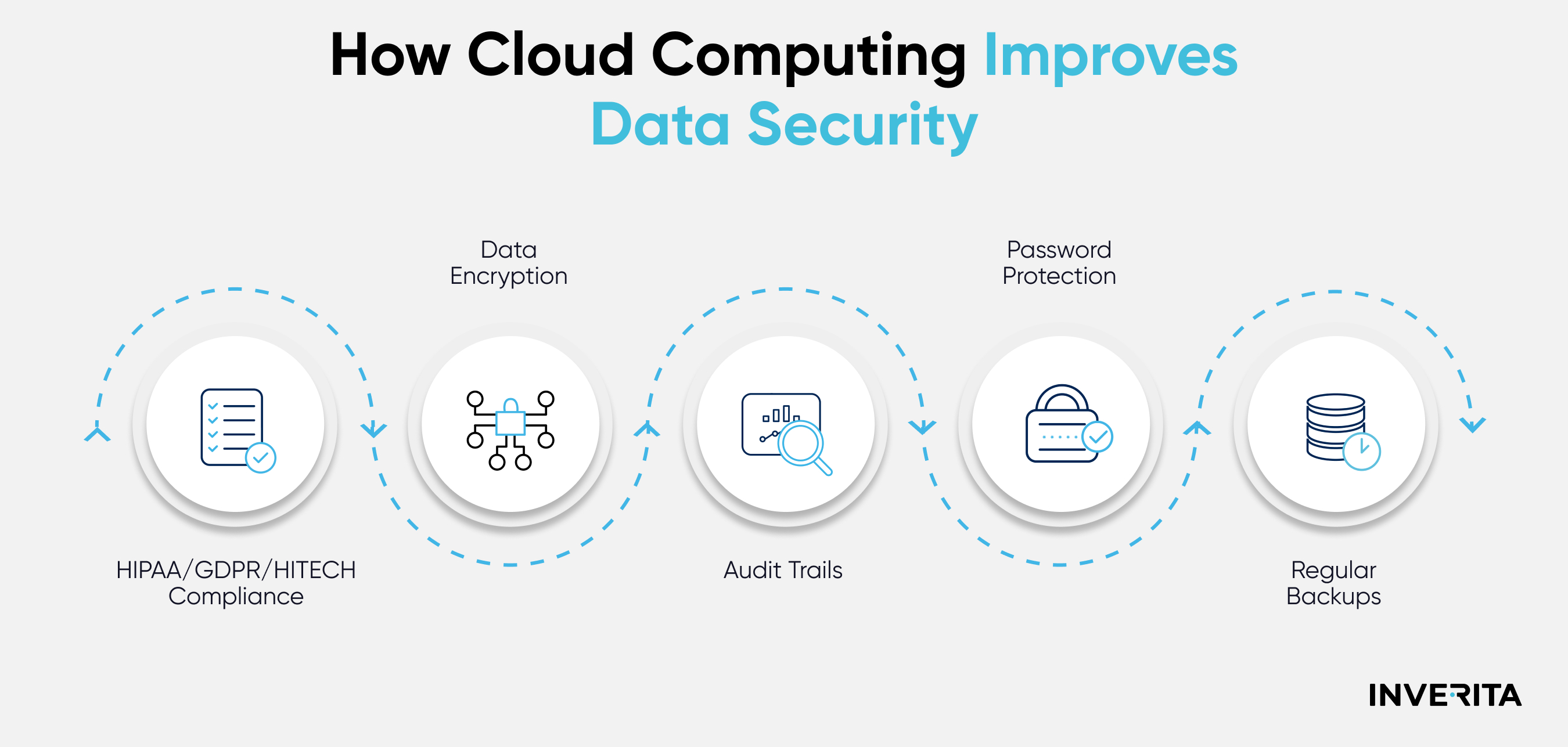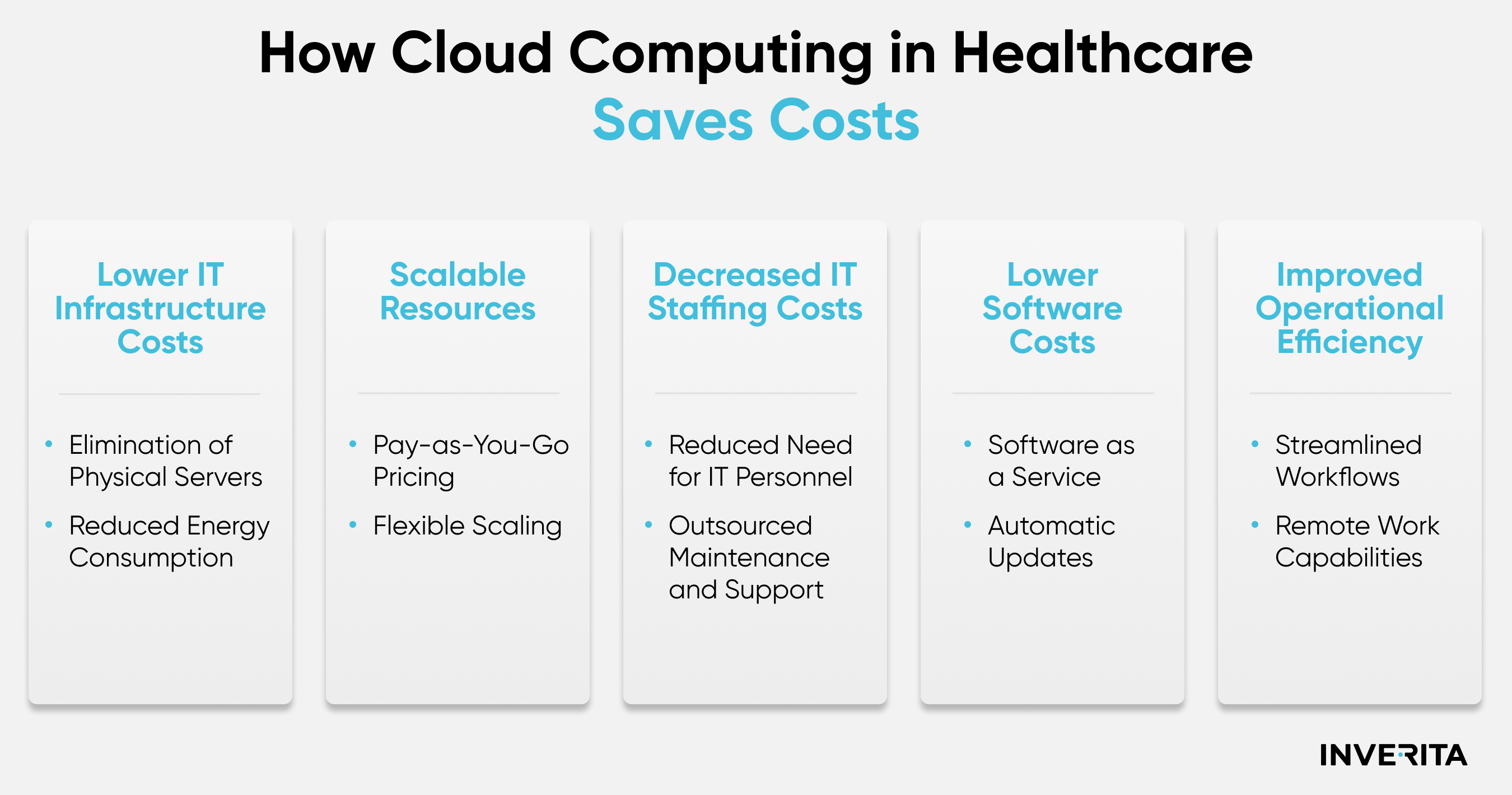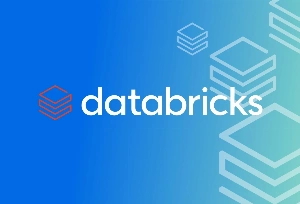HIMSS Analytics’ recent survey reports that approximately 83% of healthcare organizations in the United States are currently using cloud computing in some form, with a significant portion planning to expand their cloud adoption further.
This shift is driven by the ability of cloud computing to address longstanding challenges that were previously either impossible or too costly to tackle with traditional computing methods.
Cloud Computing in Healthcare Industry
In simple words, cloud computing in healthcare involves using remote cloud-based data centers to provide essential computing resources such as storage, servers, software, and analytics via the internet. This enables healthcare providers to efficiently manage and process large volumes of critical patient data.
The Importance of Cloud Computing in Healthcare
Healthcare facilities process millions of medical images like MRIs and CT scans yearly. The adoption of advanced imaging technologies, such as 3D imaging, the growing popularity of telemedicine, and electronic health records further increases the need for robust document storage capabilities.
One of the biggest cloud computing benefits in healthcare is that it provides scalable storage solutions and computational power, enabling healthcare professionals to manage and analyze these large datasets securely and effectively.










